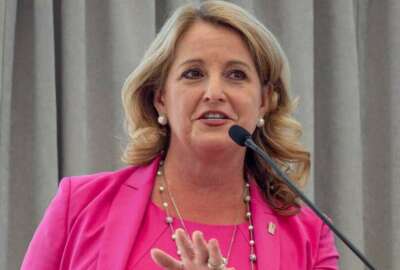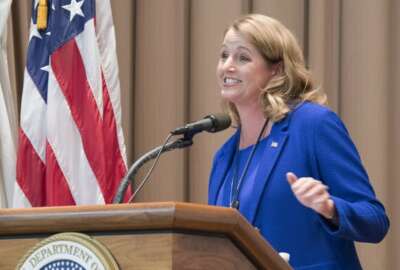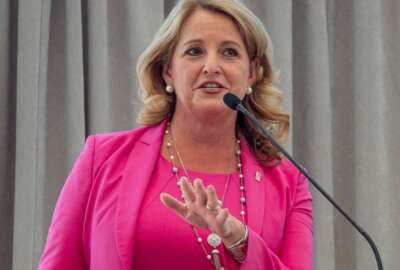
HUD pays back Tech Modernization Fund after seeing return on investment
HUD stands out as the first agency to pay back the TMF, based on cost savings it achieved under a project to move five of its critical business systems from a...
The Department of Housing and Urban Development has paid back more than $1 million to the Technology Modernization Fund after the agency was loaned $20 million to move some of its legacy IT to the cloud.
HUD stands out as the first agency to pay back the TMF, based on cost savings it achieved under a project to move five of its critical business systems from a legacy Unisys data center mainframe to the cloud.
Kathleen Cheeseman, a senior IT program manager at HUD working on the project, said the agency so far has paid back $1.1 million to the TMF. The bulk of HUD’s repayment, she added, will come later in the project, when it sees a greater return on its investment.
“Our repayment plan is actually structured so that the majority of the money comes in the year we turn the Unisys off [and] really start saving money,” Cheeseman said Wednesday at an ATARC event at the General Services Administration’s headquarters.
The cloud migration impacts systems that 30,000 users depend on, and keeps more than 100 agency grant, subsidy and loan programs running. By converting the legacy system’s code from COBOL to Java, the agency expects to save $8 million annually.
In addition to paying back the TMF over the next five years, HUD will use some of the cost savings from this cloud migration effort – as well as some of the lessons learned – for another project that will move a second data center to the cloud.
HUD IT specialist Rob Arrington said he’s looked at migrating six systems from the agency’s legacy IBM mainframe and taking a similar approach to convert the code. However, in cases, he said. HUD may take a different approach based on some of its lessons learned from the Unisys migration.
HUD has a working capital fund for its programming operations, and Arrington said he’s had conversations about using that working capital fund to pay for some of the migration efforts for its second mainframe.
Related Stories

9 projects, 7 agencies and 4 finalists for extra IT modernization funding
“This ended up becoming this precursor … We look at the savings and the O&M on the mainframe and the savings that we’re going to have in all the future years of making changes to it, which is where we get all that money, which allows us to pay back the TMF.”
Federal Chief Information Officer Suzette Kent told Federal News Network last month that the TMF had recently gotten some its money back, but didn’t specify which agency had paid it.
While the Agriculture Department hasn’t yet outlined how it intends to pay back the TMF for its $10 million loan to overhaul Farmers.gov, Deputy CIO Francisco Salguero said the agency is currently measuring the success of the project in terms of its impact on customer experience.
“At the end of the day, [USDA] Secretary [Sonny] Perdue is very much customer-focused. That’s not something you can measure except if you talk to the farmers,” Salguero said.
In order to measure that impact, USDA CIO Gary Washington and Perdue have held listening sessions to ask farmers how the agency can continue to improve its customer experience.
“What do we need to do to further what we’ve done, and what do you not have today that you need for the future? This is not a one-time thing or one-time deal, but this is something that we can now implement as part of the process of what we do,” Salguero said.
Copyright © 2025 Federal News Network. All rights reserved. This website is not intended for users located within the European Economic Area.
Jory Heckman is a reporter at Federal News Network covering U.S. Postal Service, IRS, big data and technology issues.
Follow @jheckmanWFED




